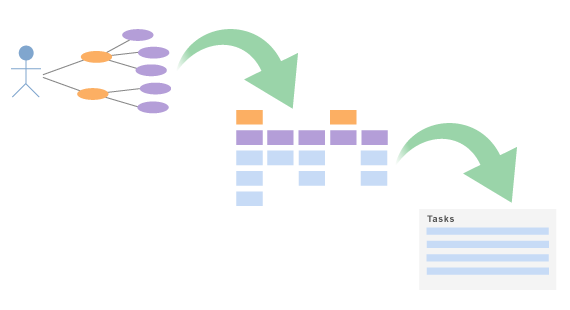Analysis and Design Step-by-Step, with recipe -like wizards.

Seamless Techniques Expressed in Prescribed Steps (STEPS) is a powerful and groundbreaking feature for software development. Like a recipe that tells you how to cook a meal, STEPS are recipes that lead you through a series of well-defined steps for conducting a particular (reusable) analysis or modeling pattern for certain aspect of your development process. Your team can reuse or choose the appropriate Wizard in your project from the default set provided by Visual Paradigm.
Software developers has come across many problems while using the traditional software development methods in the old days, especially when the customer requirements tend to change frequently. As a solution, Visual Paradigm introduces STEPS, a group of small reusable software development wizards, helping development teams to cope with the fast changing customer's requirements and frequent iterations of the software development process.
STEPS leads you through activities within development process. Tasks that are complex, infrequently performed, or unfamiliar can be easily and properly performed.
Your work will be transformed automatically from one step to another. All the transformation is done behind-the-scene. You will get accurate result without any extra configuration and re-work.

All the steps have instructions documented. The instructions do not just guide you through the completion of step but also provides you with tips and additional material in learning about the intent and rationale behind what you are doing.
You may want to output your work into a document. The Doc. Composer provides you with a drag-and-drop interface in developing documents in quick. You can optionally include custom text and re-arrange content in the way you want.
| STEPS Wizard | Objectives | Compatible Editions |
|---|---|---|
| Use Case 2.0 |
|
Enterprise Professional |
| Developing MVC Sequence Diagrams from CRUD Model |
|
Enterprise Professional
|
| Develop CRUD Chart from DFD |
|
Enterprise Professional Standard |
| Competitive Analysis with Radar Chart |
|
Enterprise Professional
|
| Capability Maturity Assessment |
|
Enterprise |
| Capability-Based Transformation Planning |
|
Enterprise |